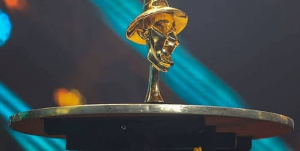Trump cites Hunter Biden pardon in latest legal attempt to throw out hush money conviction
3 min readDefense attorneys for President-elect Donald Trump are using a recent pardon granted to Hunter Biden, son of President Joe Biden, as a central argument to have Trump’s conviction in the Manhattan hush money case thrown out. Trump’s legal team argues that the pardon issued to Hunter Biden on the grounds of “selective and unfair prosecution” provides a valid reason to dismiss the charges against the former president.
On Monday, Trump’s lawyers, Todd Blanche and Emil Bove, filed a motion that pointed to the comments made by President Biden when issuing Hunter Biden’s pardon. In their motion, they highlighted Biden’s statement that his son had been “selectively, and unfairly prosecuted” and “treated differently.” Trump’s legal team contends that these remarks imply that President Biden himself is condemning the practices of the Justice Department, including the prosecution conducted by New York District Attorney Alvin Bragg. Bragg’s office successfully prosecuted Trump earlier this year for falsifying business records related to hush money payments made to adult film star Stormy Daniels in 2016.
Trump’s attorneys argue that Bragg’s prosecution of Trump follows the same “political theater” described by Biden when referring to his son’s case. According to Trump’s lawyers, these statements from the president reflect a broader pattern of selective prosecution, suggesting that Trump’s case should similarly be dismissed due to political motivations. Despite these legal arguments, the Manhattan District Attorney’s office has signaled that it will oppose any attempt to overturn the conviction, asserting that the case should proceed as planned.
In addition to the pardon argument, Trump’s defense also claims that his status as President-elect presents a “legal impediment” to further criminal proceedings. They argue that the Presidential immunity doctrine, which was reinforced by a Supreme Court ruling last summer, shields him from prosecution. The lawyers assert that this doctrine and the Supremacy Clause of the U.S. Constitution prevent the continuation of criminal proceedings against a sitting or incoming president.
Trump’s legal team pointed to the example of special counsel Jack Smith’s decision to end two federal criminal cases he had initiated against Trump last year. Smith’s decision to drop the charges was based on longstanding Justice Department policy, which prohibits criminally prosecuting a sitting president. According to Trump’s lawyers, even Smith, under the guidance of the Department of Justice’s Office of Legal Counsel (OLC), was forced to acknowledge that Trump’s status as President-elect requires the dismissal of the criminal charges against him.
While Trump’s legal team has argued that the criminal case against him should be dismissed due to his reelection, the Manhattan District Attorney’s office has stated that it is prepared to wait until after the 2024 presidential election before proceeding with any sentencing. In a statement to the court, the DA’s office acknowledged that Trump is unlikely to be sentenced “until after the end of Defendant’s upcoming presidential term.” However, it maintains that Trump’s felony conviction should stand and that the case should proceed.
A source familiar with the district attorney’s office revealed that they are open to a temporary delay of the case but reiterated that no current legal framework mandates the dismissal of the case based on Trump’s status as President-elect. The DA’s office clarified that, under existing laws, a president’s temporary immunity from prosecution does not prevent post-trial criminal proceedings from continuing. Furthermore, the office emphasized that the case is based on official conduct for which the defendant is not immune, strengthening its position that the conviction should not be dismissed.
As the legal battle continues, Trump’s defense team remains firm in their stance that both the pardon of Hunter Biden and Trump’s imminent presidential status should result in the dismissal of the charges against him. However, the legal fight appears far from over, as the Manhattan District Attorney’s office prepares to challenge these motions and push forward with the case. The outcome of these proceedings could have significant implications for the future of the case, as well as for how the legal system handles the immunity of sitting and incoming presidents.






